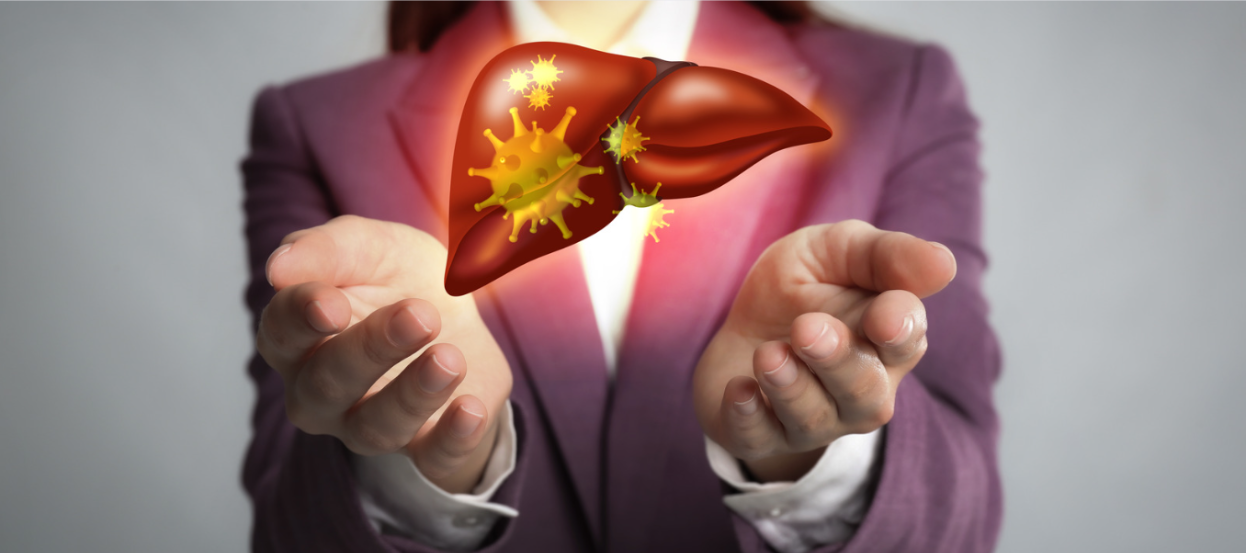
Home Remedies for Fatty Liver disease happens when more than 5 to 10% of your liver’s weight is fat. It puts your liver at risk of damage, inflammation, and scarring. Fatty liver is of two types: alcoholic fatty liver and non-alcoholic fatty liver. The former occurs due to excessive alcohol consumption, while the latter occurs for unrelated reasons to alcohol. It could be due to a high-fat, high-carbohydrate diet or physical inactivity. This blog post will explain a few Home Remedies for Fatty Liver to help you better recover.
Apple Cider Vinegar (ACV) is one of the best home remedies for fatty liver disease. It benefits you by decreasing fat accumulation in the liver and causing weight loss. It also improves liver function by reducing inflammation. All you have to do is mix a tablespoon of ACV (Apple Cider Vinegar) into a glass of water and drink it twice before meals. You can also add honey to improve the flavor. Repeat for two months to see if there is a difference.
Also, Read: What Foods are Good for Fatty Liver and What to Avoid?
Losing weight is an essential part of slowing the progression of NAFLD and its symptoms. People with obesity and NAFLD should lose 3 to 5% of their body weight to minimize fat buildup in the liver.
It also claims that losing 7 to 10% of one’s body weight can help with other NAFLD symptoms like inflammation, fibrosis, and scarring. The most effective way to lose weight and keep it off is to take small steps toward your goal over time. Fasting and extreme diets are frequently unsustainable and can be harmful to your fatty liver.
Lemons are high in antioxidants and vitamin C, which aid in the production of glutathione by the liver. This enzyme neutralizes toxins in the liver, aiding in detoxification. Squeeze a lemon of water and drink it twice or three times a day for a few weeks. It will help reduce fat accumulated in the liver, thereby naturally treating fatty liver disease over time.
According to a 2017 study, the Mediterranean diet could help to reduce liver fat even if no weight is lost. Furthermore, the Mediterranean diet helps with NAFLD-related high cholesterol, high blood pressure, and type 2 diabetes conditions.
This eating plan emphasizes plant-based foods and healthy fats. Here’s a quick rundown of the foods to avoid:
Include the following:
This spice is a natural healer for all sicknesses. This spice’s beneficial antioxidants are whatever you need to treat fatty liver disease naturally. Turmeric enhances your body’s order to absorb fat and prevents it from accumulating in the liver. You could make a turmeric drink by combining 1/4 teaspoon turmeric with two glasses of water. It would aid if you consumed it daily to help prevent fatty liver disease. You might mix turmeric into a glass of milk for the same effect and drink it every day.
While You can find specific types of Polyunsaturated fats like omega-3 fatty acids in foods like fatty fish and some seeds and nuts. They’re well-known for their heart-health advantages and are suggested for people with NAFLD. According to a 2016 series of research, taking an omega-3 supplement could decrease liver fat cholesterol levels.
Every day now, omega-3 doses varied from 830 to 9,000 milligrams in the study. Check with the liver specialist doctor in Pune about how much you must take and whether they think the performance enhancer route is best than the meal route.
Another excellent home remedy for fatty liver is amla. This fruit is high in vitamin C, which is essential for the proper functioning of the liver. It works by cleansing the liver of toxins. You can eat it raw or contribute it to your snacks while it is cooking.
Physical inactivity is a significant risk issue for fatty liver disease. To counteract this:
It will assist you in successful metabolism up your body and maintaining proper liver function. It will be most effective if combined with a healthy, well-balanced diet.
Changing one’s lifestyle and diet are currently the most effective ways to manage NAFLD. Some methods that may help improve NAFLD signs include losing weight, being physically active, cutting back on sugar, and drinking coffee. Keeping one fatty liver under control is critical to your overall health; excess liver fat can make you more susceptible to heart disease.